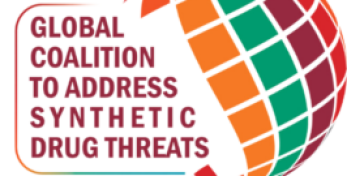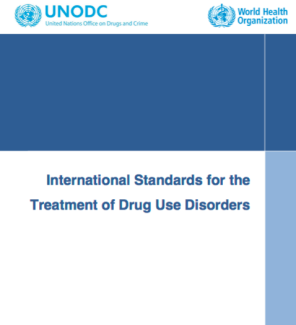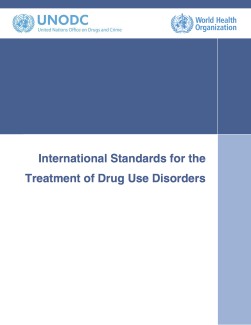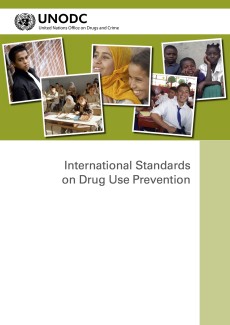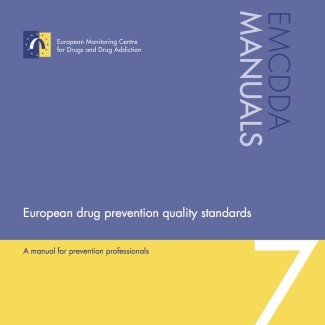Search
Applications Are Now Open for Research Innovation Grants
Alcohol Research UK is now accepting applications for the Research Innovation Grants 2016/17 programme. The focus of this year's programme is treatment and recovery today. The alcohol services sector and approaches to both treatment and...
Policy Review Workshop on Drug Treatment Centres in Bangladesh
At the beginning of October 2016 the Addiction Management and Integrated Care unit (AMIC) of Dhaka Ahsania Mission (DAM) organised a workshop to review its existing policies regarding drug treatment centres. Particular focus was put on...
E-Cigarettes and Passive Smoking: Is There a Risk?
E-cigarettes are becoming more and more popular. As such, many in the field of drug prevention and treatment are eager to uncover how they affect our health. E-cigarettes do not contain tobacco. However, it has been found by researchers at...
Adieu to Stereotypes? Alcohol and Tobacco Consumption in France
If you were asked to provide a list of things we most associate with French cultural identity, wine and cigarettes would probably feature. A recent survey, however, suggests that, as is generally the case across Europe, alcohol and tobacco...
Derecho a la salud y tabaquismo en las Américas
Una audiencia histórica. Por primera vez, la Comisión Interamericana de Derechos Humanos (CIDH), de la Organización de Estados Americanos (OEA), en el marco del 157 Periodo de Sesiones, concedió una audiencia temática sobre tabaquismo ante...
Music Videos Might Encourage Binge Drinking
 A recent review carried out by researchers at the University of Nottingham's UK Centre for Tobacco and Alcohol Studies suggests popular YouTube music videos that include aural and/or visual references to alcohol often glamourise consumption...
A recent review carried out by researchers at the University of Nottingham's UK Centre for Tobacco and Alcohol Studies suggests popular YouTube music videos that include aural and/or visual references to alcohol often glamourise consumption...
International Standards for the Treatment of Drug Use Disorders
Drug use disorders are a serious global health problem. The United Nations Office on Drugs and Crime (UNODC) estimates that 246 million people, or one in twenty 15- to 64-year-olds, used an illegal drug in 2013. Of those who use, one in ten...
Helping Young People Lead Healthy Lives
'Listen First' is a drug prevention initiative that aims at raising awareness around listening to children and youth as the first step to help them grow healthy and safe. This global campaign targets parents, teachers, policy makers, health...
World Renowned Nightclub to Close after Drug-Related Deaths
London’s world-famous nightclub 'Fabric' has had its license revoked due to what local authorities have described as a “culture of drugs” at the venue. In the last four years there have been six drug-related deaths involving the nightclub...
Youth Who Misuse Drugs Are More Likely to Commit Suicide
Suicide ranks among the top five causes of death among 15- to 19-year-olds. Research has shown that youth who misuse drugs are more likely to commit suicide than their peers who do not abuse substances. An estimated 27-50 percent of...
Addiction as a Brain Disease
Even though scientific advances over the past decades have supported the concept of addiction as a brain disease, skepticism remains. Recent research has aimed to reinforce the link between addiction and brain functions and broaden the...
Online Learning for Prevention Standards
White House Eases Cap on Medication for Opioid Addiction
UNODC World Drug Report 2016
Around five per cent of the adult population, or nearly 250 million people between the ages of 15 and 64, used at least one drug in 2014, according to the latest World Drug Report released today by the United Nations Office on Drugs and...
International Standards for the Treatment of Drug Use Disorders: Draft for field testing
The International Standards for the Treatment of Drug Use Disorders (Standards) were prepared by UNODC and WHO to support Member States in the development and expansion of treatment services that offer effective and ethical treatment. The...
Study Links Medical Marijuana Dispensaries to Reduced Mortality From Opioid Overdose
EMCDDA Publishes Its First Report on Health Responses to New Psychoactive Substances
International Standards on Drug Use Prevention
These global International Standards summarize the currently available scientific evidence, describing interventions and policies that have been found to result in positive prevention outcomes and their characteristics. Concurrently, the...
European Drug Prevention Quality Standards
The EDPQS provide a set of principles to help develop and assess the quality of drug prevention. They offer a comprehensive resource outlining all the elements of drug prevention activities. The EDPQS were developed by the European...
Registration open for fifth European drugs summer school
Share the Knowledge: ISSUP members can post in the Knowledge Share – Sign in or become a member



